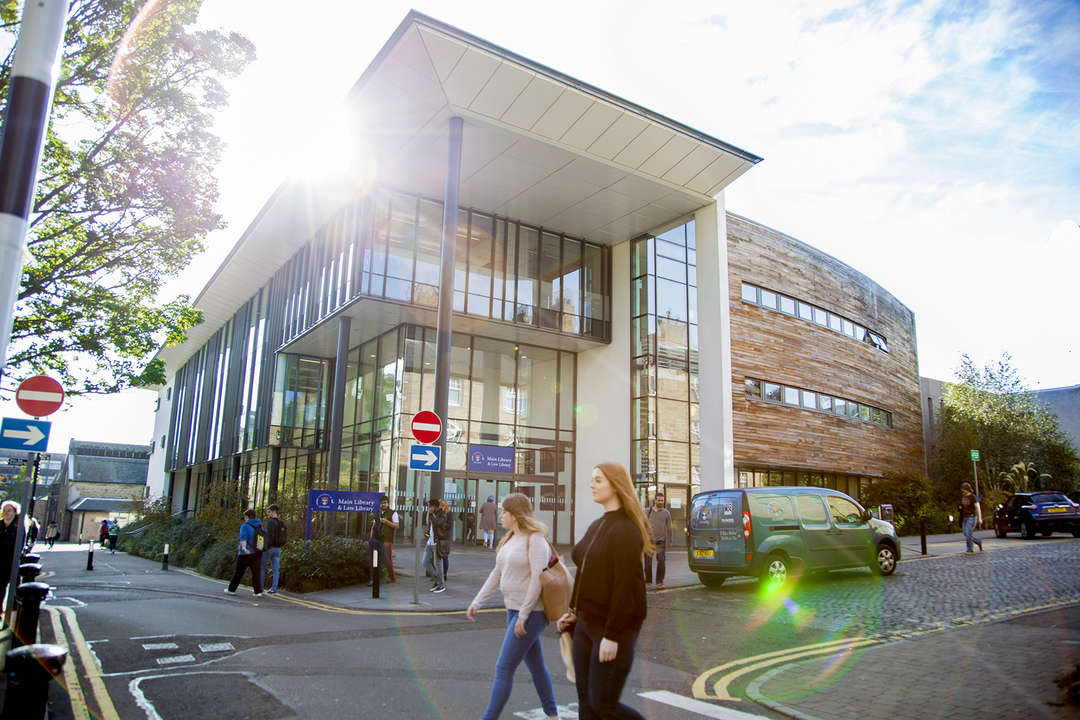On Thursday 5th September, Bridget McCall, Michael Duncan, and Kirsty Knowles attended the ICEPOPS Copyright Conference at Leeds Beckett University. This was the fifth year of the conference that takes a lighter look at the labyrinth of copyright. The conference is an opportunity for professionals and copyright enthusiasts from libraries, universities, industry and other sectors to swap stories of copyright success and failure, share best practice, and explore new and engaging ways to talk about copyright. The theme this year was “Copyright and the Human Being”, taking a more personal approach in the face of AI.
This fact-finding mission was on behalf of the Library’s new Copyright Group. By taking a collective approach with input from teams across the Library, the Copyright Group aims to give students and academics confidence in dealing with their copyright issues by offering more rounded guidance and advice. With its variety of speakers and focus on the “Human Being”, this year’s ICEPOPs conference was the perfect opportunity to get some tips on where to begin.
Conference highlights
The Keynote speaker, Kyle Courtney from Harvard University is a librarian and a lawyer (a handy combination of skills to have around any library). Kyle took us through a brief history of legal cases raised against public libraries. Turns out publishers and libraries have been at odds over ownership, access, and revenue for long time.
Kyle pointed out that copyright law can be interpreted to the library’s benefit, urging libraries to improve accessibility to their collections through a risk-based approach to digitisation. Starting with initiatives that are low legal risk but have high scholarly value. Kyle also highlighted how crucial non-exclusive rights have been to libraries connecting author/creator’s work with readers. Giving libraries the rights they need whilst allowing copyright holders to own and do other things with their work will be important to both academic and public libraries in the future, as the publishing landscape changes.
Other conference highlights included speakers from Kings College London sharing practical examples of what a copyright group could achieve. A copyright decision tree, a risk matrix, video resources, were three examples of tools and resources produced by the library staff since starting the group.
We heard from the World Bank (a prolific Open Access publisher) on the success of their copyright engagement strategy over the years, with their “Copyright and Coffee” going from 17 to over 200 attendees
As the British Library recovers from a cyber-attack suffered last year, we heard horror stories of lost databases, downed SharePoint sites, and blocked back-up servers. No one is trained for this type of crisis management in their day jobs, but it is ordinary library colleagues who help with the long road to recovery.
On the lighter side, there were games and novel approaches to copyright engagement, like the Copyright Wheel and the Open Access Card Game. We also got an insight into the origins of the board game Monopoly and its surprisingly dark copyright history.
Kirsty and Michael also delivered a talk on the copyright issues they faced when publishing undergraduate dissertations at the DCJAD Degree Show 2024 full of third party copyrighted images.
Take-aways
Engaging students and staff on copyright can be tricky as it quickly turns to legislation and legal precedent. If not delivered with the required passion and enthusiasm, copyright workshops can end up being a little dry. When events are relevant to the audience designed with solutions in mind, then copyright can be an engaging subject.
The answer to copyright questions is all too often “it depends”. We need to be able to say more than that and give the students and staff who come to us for advice the confidence to move forward. If we focus too much on the tiny details or hugely terrifying legal cases, it can be off-putting. Finding new ways to talk about copyright and emphasising the positives over worst-case scenarios is part of effective copyright communication from a library.
Be part of the copyright collective
The ICEPOPs Conference offered plenty of ideas to take into the first meeting of the Library’s Copyright Group. If you are a Library colleague and want to join the group, give us an email. The more of us who know about copyright the better. Even if you don’t work at the Library but want to contribute or ask a copyright question, get in touch: library@dundee.ac.uk.
Resources from Kyle Courtney’s keynote
Courtney, Kyle K. and Juliya Ziskina. 2023. “The Publisher Playbook: A Brief History of the Publishing Industry’s Obstruction of the Library Mission.” Pre-print.
Hachette v. Internet Archive Wikipedia page


Leave a Reply